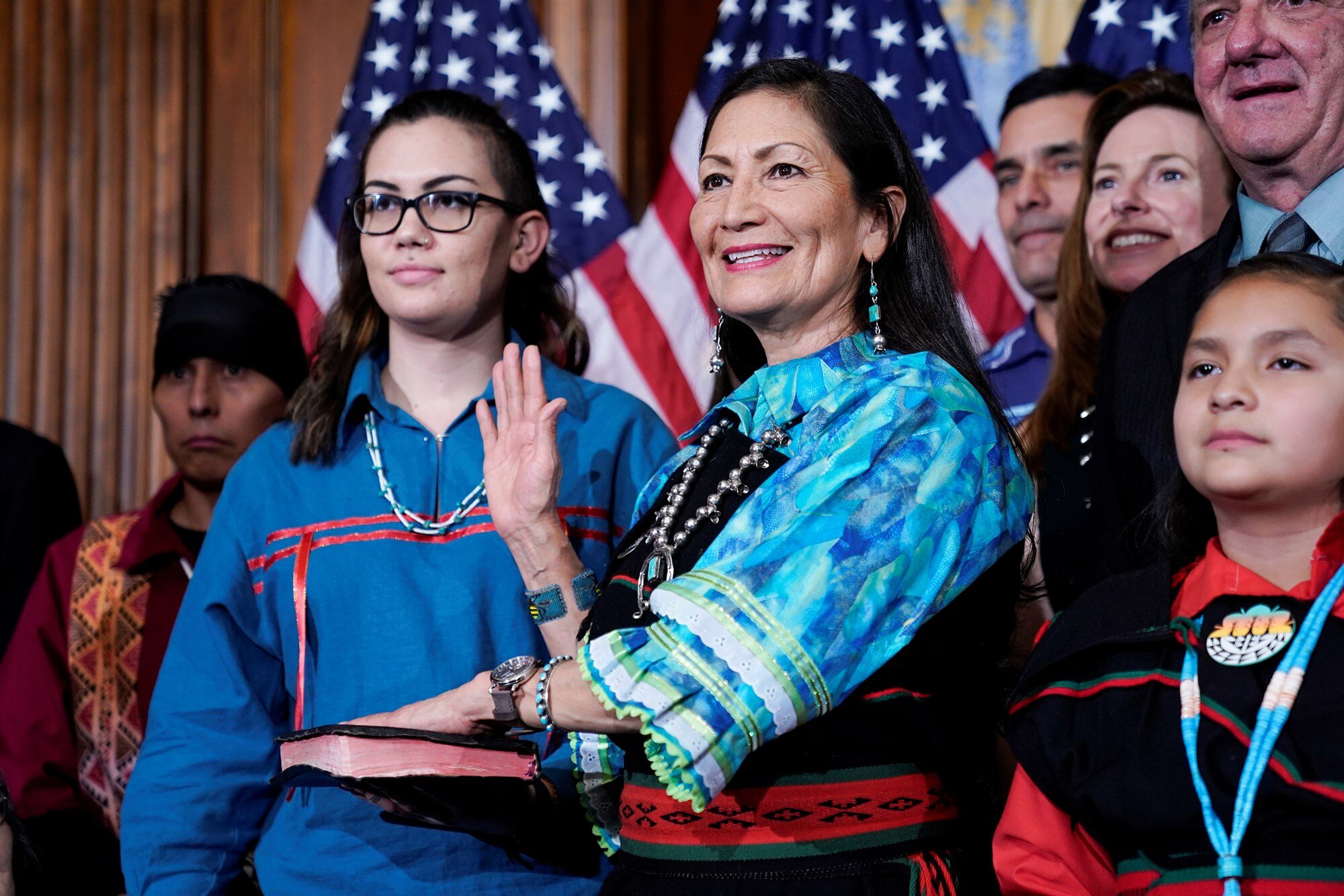Deb Haaland Confirmed as First Native American Secretary of the Interior
Former Rep. Deb Haaland, D-N.M. - now Secretary of the Interior - poses for a ceremonial picture to celebrate her swearing-in to the House of Representative 2019. Source.
On Monday March 15, the U.S. Senate voted 51 to 40 to confirm former New Mexico Rep. Deb Haaland as Secretary of the Interior, making her the first Native American cabinet secretary in American history. Four Republicans - Senators Graham (SC), Collins (ME), Sullivan (AK), and Murkowski (AK) - joined the Democrats in yay votes. This is not the first time Haaland has made history. In 2018 she and Rep. Sharice Davids (D-KS), became the first Native American women elected to Congress. Haaland’s nomination and confirmation represented a positive step toward President Biden’s promise to create the most diverse cabinet in U.S. history. Haaland also assumes the office at a particularly challenging time when battling climate change is at the forefront of the national political conversation. She will be tasked with carrying out the Biden administration plan to reduce carbon emissions on a nationwide scale.
For many, Haaland’s confirmation is seen as a long-overdue recognition of Indigenous peoples’ interests at the highest levels of American government. West Virginia Senator Joe Manchin stated that it was “long past time to give a Native American woman a seat on the Cabinet table.” The historic nature of the vote was not lost on Senators, especially those who were on the fence about Haaland like Alaska GOP Sen. Lisa Murkowski, a solid swing vote in the chamber. As The Washington Post reported, Sen. Murkowski struggled with how she would vote on Haaland’s confirmation but in the end “chose history over oil and gas.”
The final vote tally is an important reflection of how the majority of Republican Senators felt about Deb Haaland. Some of her policy positions which were labeled as radical by GOP members of the Senate Energy and Natural Resources Committee. Haaland’s support of the Green New Deal was also a point of contention among Senators who questioned if she would be supporting President Biden’s agenda or her own. To overcome this criticism, Haaland touted her bipartisan work in the House of Representatives and her support from Alaska GOP Rep. Don Young who introduced her to the committee and confirmed her resolve to bipartisanship.
Haaland will lend her voice to the growing number of diverse cabinet members in the Biden administration. Yet the slow process of getting many of the President’s women nominees and nominees of color confirmed has drawn some criticism. Many have noted that the protests of the past year have placed racism and racial inequality in the spotlight at a time when Congress and government in general is in a particularly polarized state. Critics have argued that while many have raised legitimate policy concerns, several GOP Senators have used language that seems to play on racial and gender stereotypes.
Biden’s cabinet nominees, including Secretary Haaland, will face a difficult four years trying to enact the Administration’s agenda. With slim Democratic majorities in the House and Senate, enacting large-scale change will be difficult. But Biden will have the benefit of a diverse group of voices to guide his policy implementation and ensure that the cabinet will make history in its own right with lasting progressive changes.

